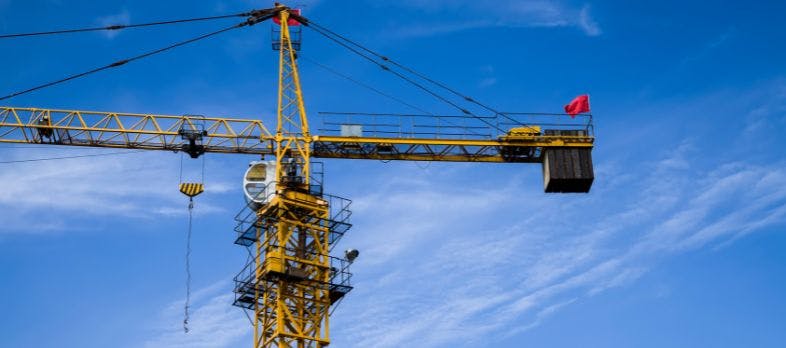First published on Friday, December 1, 2023
Last updated on Tuesday, December 5, 2023
Have you heard the latest news?
Welcome to HR Heartbeat, where we give you a rundown of the week's top employment law stories. Stay on the pulse of current trends impacting your business. Plus get up-to-the-minute commentary on all things HR and legal.
So, let's check out this week's headlines...
Not so small claims limits
Good news for Saskatchewanians: the government of Saskatchewan recently increased the monetary limit for claims in the Provincial (Small Claims) Court from $30,000 to $50,000 in a move to make justice more accessible for its residents.
Starting April 1, 2024, Saskatchewan will have Canada's second-highest small claims limit, making it more cost-effective to resolve disputes.
If you'd prefer to take your matters to the Court of King's Bench, it's still possible to use the new cap of $50,000. But for claims over this limit , you'd have to forgo the excess amount and file your case through the Small Claims Court.
This is particularly beneficial for businesses, as resolving disputes faster frees you up to focus your time and resources on what matters most—growing your business.
But this could also mean more employees will be willing to take their employers to Court over disputes like terminations or the cost of termination settlements.
That's why you need watertight employment contracts with explicit termination clauses to protect you from costly fines.
Bricks, mortar, and liabilities
Employers with construction projects have one more thing to add to their list of responsibilities.
The Supreme Court of Canada (SCC) recently decided that the owner of a construction project can be considered an "employer" under Ontario's Occupational Health and Safety Act (OHSA).
After a fatal accident at a construction project, the City of Greater Sudbury and a contractor managing and conducting a construction project were charged under OHSA for failing to maintain a safe work environment for their workers.
Initially, the trial judge acquitted the City, but the Crown appealed and argued that because the City's employees would sometimes visit the site for inspections and quality control, the City was also an employer under the OHSA.
The Ontario Court of Appeals agreed with the Crown's argument; however, the Court declined to decide whether "control" over the contractor's work was required for the City to be considered an employer under OHSA.
The City then appealed to the Supreme Court of Canada (SCC), but the SCC upheld the Court of Appeals decision. The Court ruled that although control is not an element in the definition of an 'employer' under the OHSA, it includes companies contracting with independent contractors.
Because the City was an "employer" of the quality control inspectors and, separately, of the contractor, the City failed to ensure that safety measures were in place on the day the accident occurred.
If your business hires independent contractors to perform work with minimal supervision, you risk being held liable as an employer for any accidents on a construction site. This applies even if you don't have direct control over the workers who cause the accidents.
It's best to keep a meaningful level of oversight and supervision over construction projects to make sure workers are following the correct health & safety procedures.
Need help understanding your health & safety obligations? Get BrightSafe Advice—our 24/7 advice line is manned by experienced Canadian experts ready to help with clear and up-to-date occupational health & safety advice.
Don't throw out your masks just yet!
As the weather gets colder and flu season goes into full swing, it may be time to consider encouraging your staff to adopt pandemic safety measures and break out their masks once again.
The OHSA requires employers to take every reasonable precaution to protect their workers, including against the transmission of infectious diseases.
So, in response to a surge in COVID-19 cases, with 5,459 cases among residents and 1,698 among staff recorded between August 27 and October 28, 2023, staff in Ontario's long-term care homes must now wear respiratory masks.
And it's not just in Ontario. Similar precautions are being taken in Manitoba, where all healthcare staff have been required to wear a medical mask during direct patient interactions since October 18.
Not everyone is a fan of the mask mandate, so if you're considering asking your staff to mask up, it's advisable to make it optional, so they don't feel pressured to go against their own principles and file human rights claims against you.
That's it for today! Come back next week for more HR news so you stay ahead of major employment law changes.
Have more questions on similar topics and more? BrightLightning has thousands of answers to all your HR and health & safety dilemmas.
As an employer, you are responsible for creating and maintaining a healthy and safe work environment. Thus, a waiver or responsibility release form is against all employer’s obligations under Occupational Health and Safety legislation across Canadian jurisdictions. If you require assistance determining your occupational health and safety obligations, please contact the Health and Safety advice line for situation-specific advice.
What procedures should I follow when an accident, incident, near miss, or illness is reported to me?
Employers should document all workplace incidents using an incident reporting form. This from should include key information such as date, time, location, name of injured worker, description of what happened, nature of injury/illness, first aid or medical treatment provided, names of witnesses, whether modified duties were required and number of lost workdays. An investigation should be conducted to identify root causes and implement corrective actions. For minor incidents requiring first aid, ensure treatment is documented. Keep the report on file. If you require assistance about workplace incident reporting, please call our Health & Safety advice lines for situation-specific advice.
Can I make employees wear face masks at work because of Covid?
The wearing of face masks of coverings as part of Covid measures at work is down to the employer to decide. Undertaking a Covid risk assessment will help you determine whether your working arrangements are such that may make face masks an advisable measure in order to prevent the transmission of Covid. You are permitted to require employees to wear masks even where there is no Government law or guidance in place but you should bear in mind that some employees will be exempt from wearing them or have other good reasons for not wearing one. Communicating the reasons for your decision to your employees will help them understand why your rules are in place.






